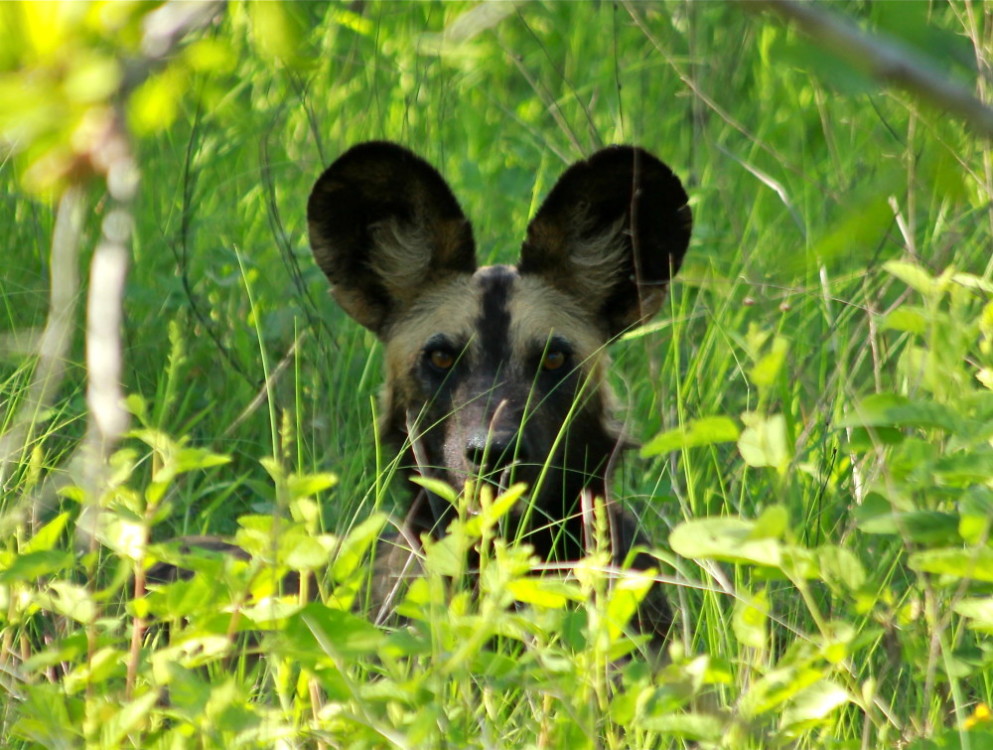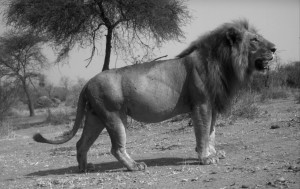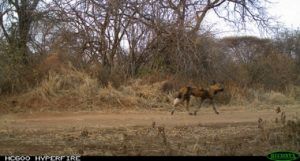Saving painted wolves, lions and endangered carnivores in Tanzania

Reducing conflict between humans and wild carnivores in Tanzania
Southern Tanzania’s Ruaha landscape is one of the most important places left in the world for lions, painted wolves and other large carnivores. However, it is also home to some of the poorest people on the planet, who lose valuable livestock to these carnivores and regularly kill them. PTES is helping the Ruaha Carnivore Project reduce attacks, provide wildlife-related benefits and encourage humans and carnivores to live alongside one another.
The problem
Painted wolves are also known as African Wild Dogs or African Hunting Dogs
Tanzania’s Ruaha landscape holds over a tenth of the world’s lions, the third biggest population of endangered painted wolves, and globally significant populations of cheetahs, leopards and spotted hyaenas. Despite its importance, Ruaha’s carnivores are extremely understudied, and this lack of knowledge has prevented the development of targeted conservation plans.
The heart of the landscape is the vast Ruaha National Park, the largest Park in East Africa, but carnivores also rely upon village land where they come into intense conflict with local communities. Carnivores attack livestock and people see very few benefits to offset those costs. This leads to widespread poisoning, snaring and spearing, so the area has an extremely high rate of carnivore killing. This situation is very negative for both people and predators, so understanding more about the carnivores here and resolving the conflict would be very beneficial for both sides.
The solution
 We are supporting the Ruaha Carnivore Project to conduct camera-trapping across the landscape, in order to provide data on carnivores for conservation planning. The camera traps will also allow the identification of likely conflict ‘hotspots’ where carnivores and people commonly overlap, so that conflict resolution efforts can be targeted most effectively. These mitigation efforts will include predator-proofing livestock enclosures to reduce night-time attacks, and placing specialised livestock guarding dogs to help protect grazing livestock. Local villagers will help manage the camera-trapping, and villages which support more wildlife will be rewarded with additional community benefits. These benefits have been selected by the villagers themselves, with healthcare, education and veterinary health the top priorities.
We are supporting the Ruaha Carnivore Project to conduct camera-trapping across the landscape, in order to provide data on carnivores for conservation planning. The camera traps will also allow the identification of likely conflict ‘hotspots’ where carnivores and people commonly overlap, so that conflict resolution efforts can be targeted most effectively. These mitigation efforts will include predator-proofing livestock enclosures to reduce night-time attacks, and placing specialised livestock guarding dogs to help protect grazing livestock. Local villagers will help manage the camera-trapping, and villages which support more wildlife will be rewarded with additional community benefits. These benefits have been selected by the villagers themselves, with healthcare, education and veterinary health the top priorities.
Together, these initiatives will significantly reduce the costs and improve the benefits associated with carnivore presence on village land. They will help inform conservation planning, encourage local tolerance of carnivores and other wildlife, improve human livelihoods and economic security, and reduce the killing of large carnivores in this vital area.
Thanks to your donations we have already achieved the following:
- Established camera-trapping grids in the Park and on village land
- Developed an initial map of painted wolf distribution across the landscape
- Predator-proofed livestock enclosures in 4 villages, resulting in a significant drop in attacks
- Trained local villagers in camera-trapping and started assessing wildlife populations so that community benefits can be provided
- Provided medicines to a local clinic and books to schools
- Placed specialised guarding dogs at nine households, and are now starting a local guarding dog breeding programme
Latest update- painted wolves win prizes!

Painted wolf (Ruaha Carnivore Project)
Painted wolves were captured in this month’s community camera trap competition in the village of Idodi. Wildlife pictures taken by camera traps on village land translate directly into points. The village that has the most points wins the competition – and $2,000-worth of additional benefits! Because painted wolves are endangered they are worth more than any other carnivore, so for this image on the right the village received 20,000 points. Note the white bushy tail, which is a great way of identifying individual painted wolves.
You can get more updates on the Ruaha Carnivore Project website.
